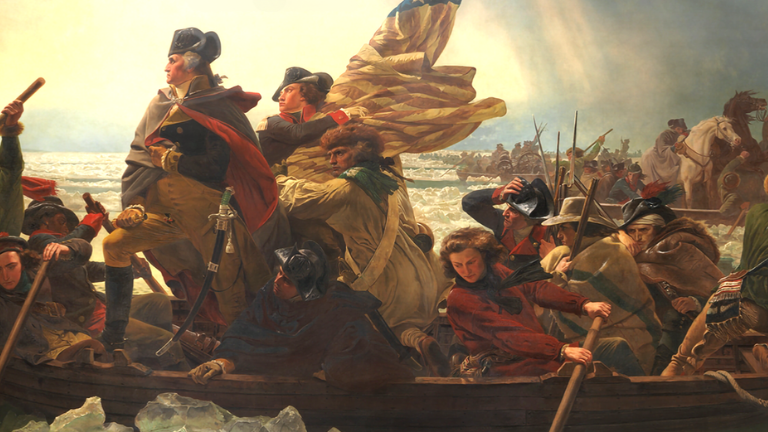
The American Miracle: Promoting Gratitude, Not Guilt
Written by on May 02, 2025 12:00 PM
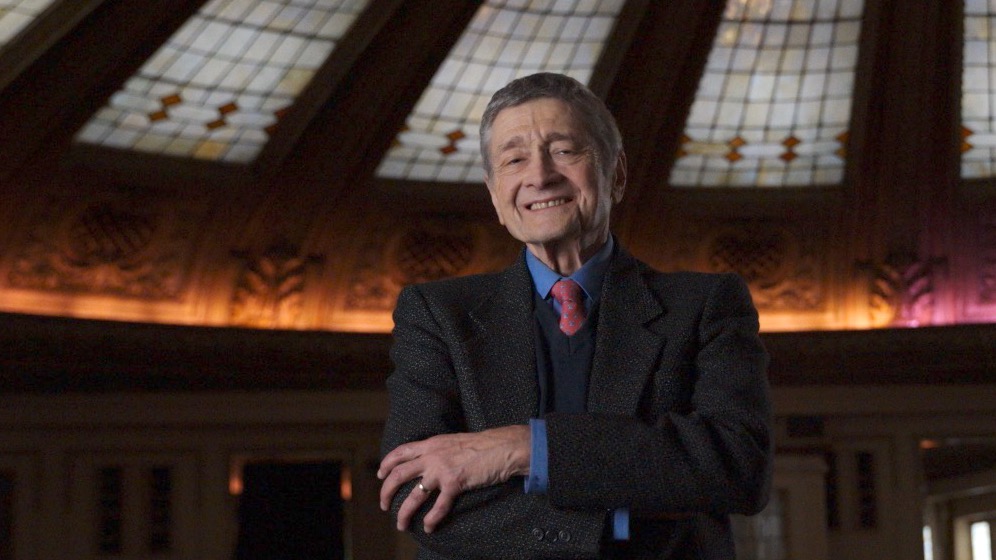
With the 250th anniversary of our nation’s founding little more than a year away, it’s an appropriate moment to reconsider the startling nature of America’s unlikely rise to unprecedented power and prosperity.
Historian Walter McDougall of the University of Pennsylvania flatly declares:
“The creation of the United States of America is the central event of the past four hundred years. If some ghostly ship, some Flying Dutchman, were transported in time from the year 1600 into the present, the crew would be amazed by our technology and the sheer numbers of people on the globe, but the array of civilizations would be recognizable.” In McDougall’s estimation, “the only continent that would astound the Renaissance time travelers would be North America, which was primitive and nearly vacant as late as 1607, but which today hosts the mightiest, richest, most dynamic civilization in history – a civilization, moreover, that perturbs the trajectories of all other civilizations just by existing.”
Even skeptical foreign observers viewed the new nation’s relentless ascent with an odd combination of awe and resentment. Otto von Bismarck, the canny statesman who led the unification of the modern state of Germany in 1871, saw something other-worldly in the development of the young colossus across the Atlantic. He proclaimed: “The Lord provides special protection for drunkards, imbeciles, lost dogs, small children… and the United States of America.”
That same sense of the nation’s distinctive blessing and preordained destiny has been taken more seriously by leading politicians and thinkers since the Republic’s earliest years. George Bancroft, the nineteenth century’s most eminent and influential historian, captured the mainstream of national sentiment with his magisterial, ten-volume History of the United States of America, written to celebrate the Centennial year of 1876. The introduction boldly announced: “It is the object of the present work to explain how the change in condition of our land has been accomplished; and as the fortunes are not under the control of a blind destiny, to follow the steps by which a favoring providence, calling our institutions into being, has conducted the country to its present happiness and glory.”
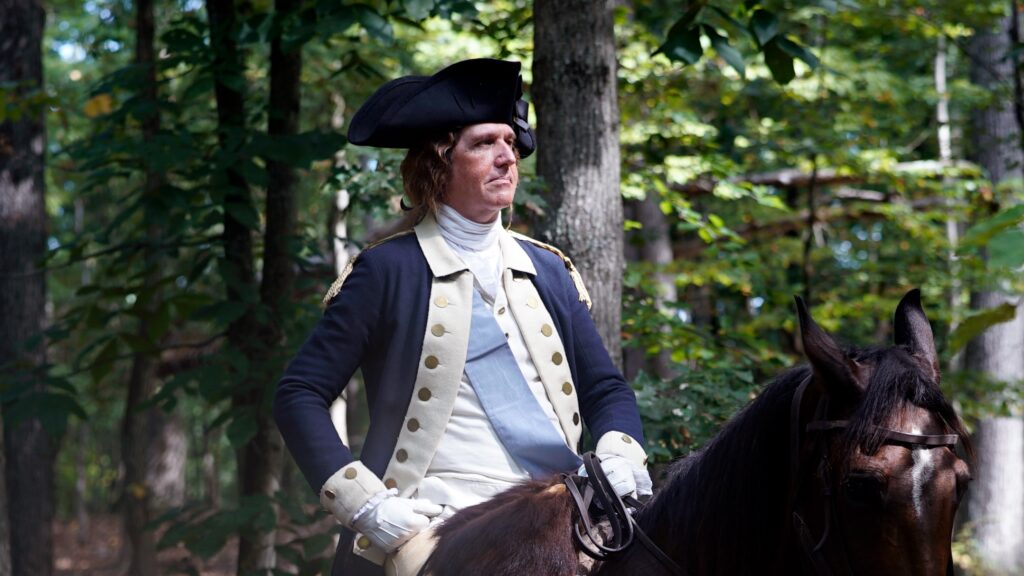
George Washington himself had no doubt that the happiness and glory he too recognized in America’s beginnings, reflected a power even more profound than his own heroic leadership. In his first Inaugural Address, on assuming the presidency in April 1789, he told his fellow citizens: “No people can be bound to acknowledge and adore the Invisible Hand which conducts the affairs of men more than those of the United States. Every step by which they have advanced to the character of an independent nation seems to have been distinguished by some token of providential agency.”
The purpose of my bestselling book The American Miracle, and of the new motion picture that it has inspired, is to make those “tokens of providential agency” that favored the Founders, as discernable to us as they were to them.
My personal passion for this project began in early childhood, long before I could do anything to meaningfully make it a reality. I did dress up as George Washington for Halloween, shortly after my sixth birthday, and growing up in Philadelphia fiercely fed my fascination with the Revolutionary generation. My father, a physics grad student at Penn during the earliest years of my life, took me to see the Liberty Bell, Independence Hall and Valley Forge, the Benjamin Franklin shrine at the Franklin Institute, and he made the visits indelible by telling and re-telling the astonishing true stories surrounding the historic sites. Seeing those places, and visualizing the remarkable people who once inhabited them, now recaptured on screen in the new film, counts as one of the deepest satisfactions of my life. I only wish my phenomenal father (who passed away in 2009) could share this cherished history with us in this fresh format.
Despite his disappointment that I never followed the parental path into a career in the sciences, he did take pride in my intensive study of colonial and revolutionary history at Yale. There, Joe Ellis, a graduate student at the time, led a particularly electrifying seminar. He went on to win Pulitzer Prizes and National Book Awards, and I’m honored that he’s featured on screen in The American Miracle movie as one of the scholars and commentators who provide context and connection.
This array of distinguished writers and historians represents a broad, bipartisan selection of political perspectives, from Akhil Reed Amar, arguably America’s most celebrated Constitutional scholar and a Sterling Professor at Yale Law School, esteemed political philosopher Robert George of Princeton, and Academy Award-winning actor Richard Dreyfuss, who is also an impassioned advocate for teaching civics in our schools.
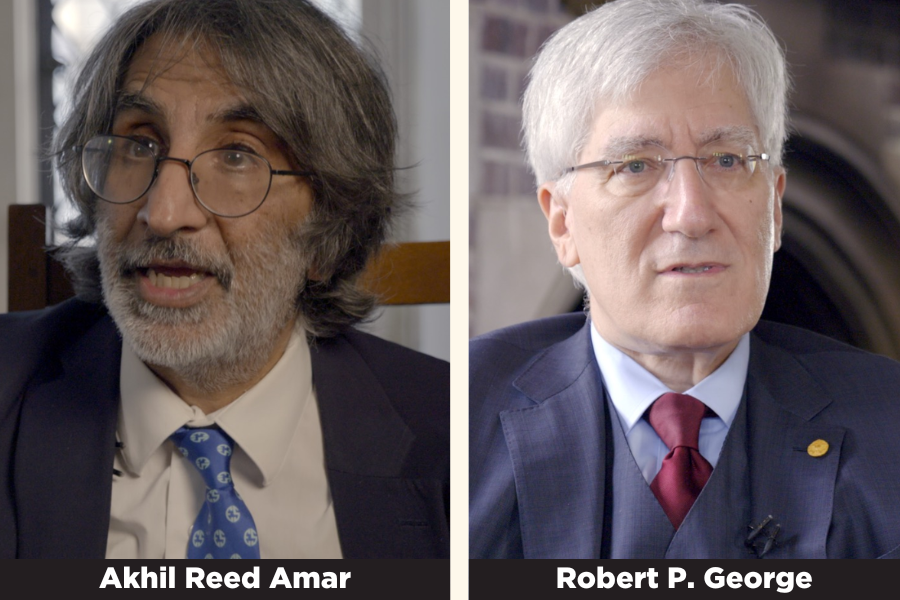
What these and other distinguished contributors hold in common is a shared conviction that deeper, and more respectful knowledge of our nation’s noble past can provide meaningful assistance in confronting the challenges of our troubled present.
Part of that trouble involves a distorted view of American exceptionalism. No one can reasonably doubt that the American experiment has compiled a history that is distinctive and, in fact, utterly unique among the nations of the world. Yet a current temptation on the part of many academics and analysts insists on evaluating our nation as exceptionally guilty, rather than exceptionally great. This perspective argues that the United States’ rise to international eminence can be explained by the cruel, single-minded rapacity of our political, business and military elites.
The great weakness in this understanding of American success involves its lack of context. Nearly all competing powers in the last three centuries compiled histories involving mistreatment of indigenous populations, slavery and imperialism that count as far more problematic, and never more honorable, than the admittedly imperfect record of the United States. Yet none of these other societies, however disturbing and vile their abuses of power, managed to replicate America’s triumphs for its own population or in global affairs. In fact, some of the worst offenders in terms of slavery, exploitation and colonialism endured the opposite trajectory achieved by the United States: for Spain, Portugal, Belgium and the Netherlands, bloody imperialist adventures corresponded with the loss of world power status, not its attainment.
Those who reject the trendy argument that America’s unique good fortune stems from the nation’s uniquely bad behavior, tend to turn to “happy accidents” as the most convenient explanation for our disproportionate blessings. The reasoning cites the abundant resources of the North American continent, favorable patterns of immigration, the absence of contiguous rival powers, the edge provided by access to both the Atlantic and Pacific Oceans, and a multitude of other seemingly random factors to explain the dynamism and dominance of the United States. Without question, America’s advantages owe a great deal to coincidence and circumstance that no human being or group of people managed to arrange.
But a pattern of happy accidents still constitutes a pattern – and indication of something more than chance at work. Could it be that the new nation’s freakishly durable winning streak owes more to the extraordinary collection of talented leaders during the Revolutionary struggle depicted in The American Miracle film? The amazing abilities of that generation saw a rustic collection of loosely connected colonies somehow producing Jefferson, Washington, Franklin, Adams, Hamilton, Madison and more, who managed to work together to make miracles happen.
Doesn’t the simultaneous presence of leadership of this quality, arising at the same moment of history, in the same remote corner of the globe, constitute a miracle in its own terms?
Moreover, every one of our founding fathers, including those of decidedly unconventional religious faith (like Jefferson and Franklin), believed profoundly that divine providence directed their Revolution. If we accord the founders so much insight and wisdom that we explain the nation’s rise with reference to their abilities, then why should we reject their unanimous conclusion that a higher power steered their affairs?
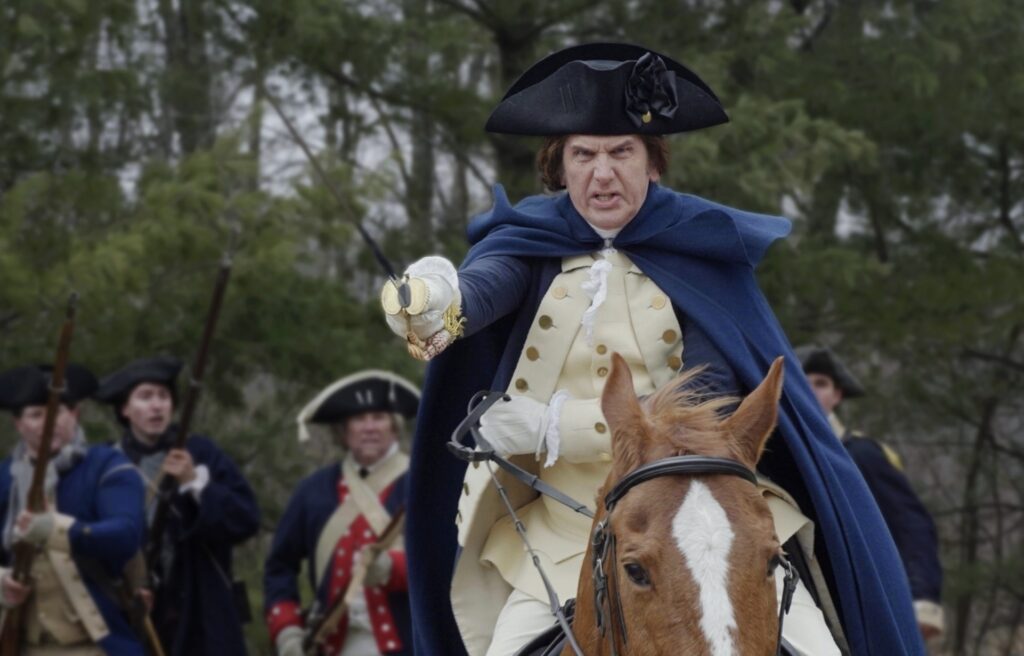
To acknowledge the marvelous, even miraculous aspects of the Republic’s past is a matter not of imagining amazements where they don’t exist, but of refusing to stay blind to them where they do. Despite the contempt of those who believe that American exceptionalism means a sense of chauvinistic superiority, taking destiny seriously shouldn’t lead to swagger, overconfidence, or xenophobia on the part of patriotic Americans.
In the years ahead, as so often in the past, recognition of our nation as fortune’s favorite, should rather encourage a sense of responsibility, humility and gratitude. Like the colorful collection of heroes and strivers who lived through countless past episodes of improbable triumph and inexplicable deliverance, we retain the personal and communal choice of how to respond to haunting, plentiful signs of God’s continued collaboration in the American Miracle.
Sign up for our newsletter to keep up to date with all our screenings.
The views expressed in this guest post are those of the author and do not necessarily reflect the opinions or positions of Fathom Entertainment.





"*" indicates required fields